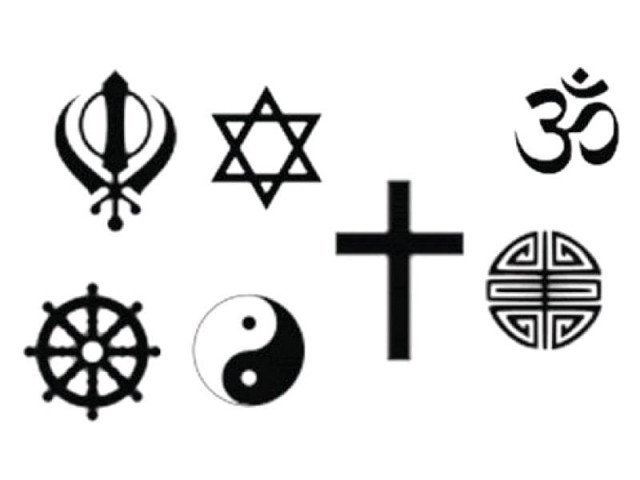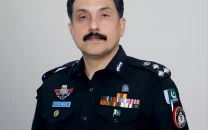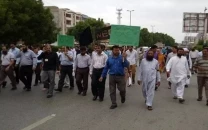Interfaith relations: SC committee for minority rights yet to make a difference
Minority groups have little faith that Supreme Court's directives of June 19, 2014 will be implemented

Minority groups have little faith that Supreme Court's directives of June 19, 2014 will be implemented. STOCK IMAGE
The consultation aimed to review the pace of the implementation of the directives and plans to ensure minority rights in the country. "It is the first time in the world that a country created a special bench in the Supreme Court to look after minority rights. If anyone has a complaint, they go directly to the three-member bench in the Supreme Court," said advocate Faisal Siddiqui.
However, Pakistan Hindu Council president Chela Ram Kewlani pointed out that the community does not even know if such a bench exists. "We have no hope in the chief minister. The politicians all have their own motives, they don't care about minorities," said Kewlani in light of the problems faced by minorities in Sindh.

Kewlani also complained that the five-per-cent quota given to minorities often includes sweepers, the hangman or other low-ranking jobs. "Everything they don't want to do themselves, they give it to minorities," he said, adding that there is little hope after the chief justice's suo motu notice on the implementation of the directives issued by the SC.
"The implementation is a project of decades; it won't be implemented in just one or two years. We have to keep at it," said Siddiqui.
Journalist Amar Guriro was of the opinion that a lot of issues highlighted by the media are not the main issues faced by minorities, such as forced conversion. "If a community does not have the right to vote, then what right do they have," he said. He also questioned why the 19 MPAs sitting in the Sindh Assembly are not doing anything. He claimed that their seats were bought from the PPP government for millions.
Guriro also criticised Kewlani's NGO for only giving representation to the rich class of Hindus, to which Kewlani replied by giving the number of shudras, the lowest class in Hinduism, in his organisation.
"All the minority members in the assembly are subservient to their parties. None of them are united," said Sonu Kangrani of the Pakistan Dalit Solidarity Network.
"This judgment has been criticised that it does not go far enough. It is not politically possible that your country can be secular," said Siddqui. "In my opinion, the constitution is neither Islamic nor secular. It is a grand compromise. It gives privileges to some Muslims but at the same time gives rights to minorities," he explained.
"Our minorities are in the ICU right now. The first and foremost priority should be to give them the right to live," claimed Siddiqui. "The implementation should be on basic freedoms right now," he implored.
Published in The Express Tribune, June 25th, 2015.



















COMMENTS
Comments are moderated and generally will be posted if they are on-topic and not abusive.
For more information, please see our Comments FAQ